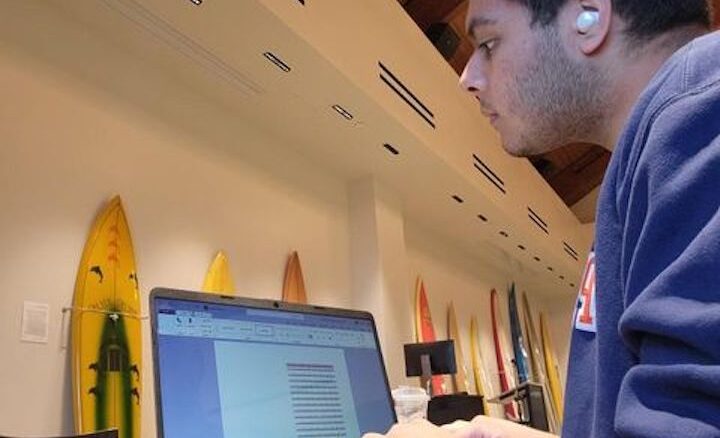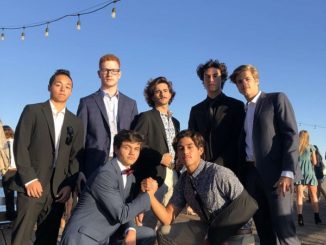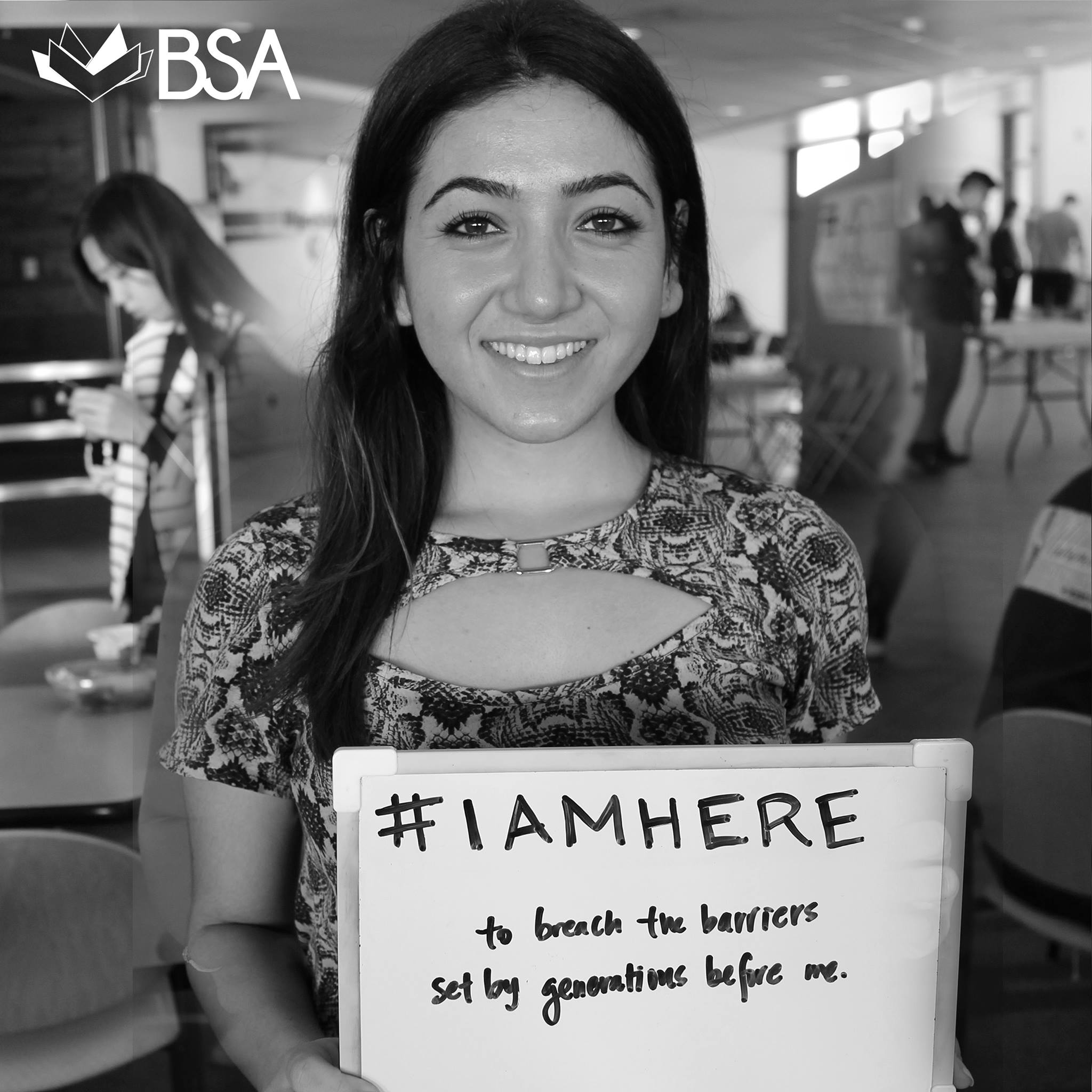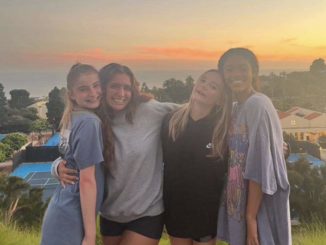
The creative writing department is home to students who wish to pursue their passion writing screenplays, novels, short stories or poetry.
The department fosters the individuality of students and elevates their success within their respective crafts.
“Studying literature and writing allows you to understand yourself better in more nuanced ways,” creative writing Director John Struloeff said. “And then you can see things about yourself and life and how other people are living their lives, but it becomes part of your understanding of your own life and other people’s lives.”
Current students enjoy the flexibility and the limitless nature of the program.
Students graduating with a creative writing major have gone on to be published authors, screenwriters, professional writers and playwrights. Some of their employers include Disney Publishing, Sage Publications, HBO, ABC Studios, The Malibu Times and others, Streuloff said.
An overview of the creative writing major, minor, and MFA program
The creative writing major requires 36 to 38 units. Students choose between three different emphases of the major: poetry, fiction, or screen and television writing. Each emphasis requires one class of upper-level literature. All emphases also require a senior project class for two credits.
Benefits of the program include increased knowledge of notable literary works, advanced writing and reading skills, enhanced social awareness and developed critical thinking skills, according to Sage.
Graduates of the program have gone on to pursue graduate education at esteemed universities such as Columbia University or University of California-Irvine, Strueloff said.
The minor in creative writing requires 20 units. Students also choose an emphasis.
The creative writing major falls under the Humanities and Teacher Education Division of Seaver College. Other majors in this division include English, film, history, and liberal arts for education.
Creative writing is one of the smallest departments at Seaver College, but has been growing steadily. In recent years, the program has been averaging around 30 majors total, Streuloff said.
Notable authors who have presented to creative writing majors include Maya Angelou, Robert Bly and Carlos Fuentes. Notable screen and television visiting writers have also visited classes, including Gary Marshall, who wrote “The Princess Diaries,” and Dean Batali, who wrote “That 70s Show,” according to the official Pepperdine website.
Pepperdine also offers a Masters in Fine Arts (MFA) program. Leslie Kreiner Wilson is the director of the MFA program at Pepperdine. Kreiner did not respond to interview requests over several weeks.
The program serves as a jumpstart for students who wish to pursue a career in screenplay writing. Pepperdine is located just outside of Los Angeles, which makes it the perfect place for aspiring writers to study, according to the Blacklist website.
Current students pursue creative writing
Creative writing students enjoy small class sizes, which gives them more opportunity to speak, listen to their peers, give and receive creative insight, first-year creative writing major Mia Adu-Gyamfi said.
“Because there are only four of us and all of us are actively pursuing becoming better writers, it makes the environment very positive and healthy,” said Kendall Bear, first-year film major and creative writing minor. “When you’re in a professional writing field, you have to listen and take into account other peoples’ ideas as well as your own.”
Bear’s goals include becoming an actress in films she writes and produces herself.
The intimacy in the classroom has an effect not only on the students’ writing but also on themselves as people.
“I feel like I have stopped limiting myself,” Adu-Gyamfi said. “When we share our work out in class, it can become very vulnerable, so having that close-knit relationship with the class allows our work to be more raw.”
Adu-Gyamfi’s goals include becoming a published poet and potentially a songwriter.
“In Intro to Creative Writing, we focus on multiple different types of writing,” Adu-Gyamfi said. “I feel like I have gotten a more clear understanding of my capabilities and the range of what I can do, whether that be writing poetry, music and more.”
The creative writing department does more for students than just expand their writing skills.
“Creative writing encourages you to think deeper — not just critically but also creatively — and it encourages you to think about certain subjects through a different lens,” said Bo Jaden James, first-year film major and creative writing minor. “It encourages us to not only create something meaningful, but also fun and entertaining that will resonate with the audience.”
James’ goals in creative writing are to write Disney films and develop Disney characters.
Students who engage in regular creative writing practice develop critical thinking skills necessary for other academic pursuits, according to Sage.
Lillian Fong, sophomore creative writing major, is presently in spiritual writing – an English composition class in which students explore their personal anecdote writing capabilities.
“The class has helped me become open to new ideas and new perspectives,” Fong said.
Her goals include becoming a published fiction author.
Senior Ryan Bresingham double majors in creative writing and film.
“The professors are very open and your creativity is never limited within the major,” Bresingham said. “Even if you are a screen-writing emphasis, you can still take poetry and fiction writing too and I really appreciate the flexibility to learn different genres of writing.”
His goals are to get involved in the film industry of Los Angeles and work on important movies and TV shows.
Writing as a professional career
Streuloff started college as a physics major before deciding to let his creativity flourish.
“I had never thought about writing as a professional option,” Struloeff said. “Then one day I realized I didn’t have to be something professionally that I didn’t want to be. I decided to pursue writing as my career and I have never looked back, it has only brought wonderful things into my life.”
He published his poetry anthology “The Man I was Supposed to be,” in 2008.
He said he came to Pepperdine because he wanted to take his writing career somewhere that could help younger people pursue their dreams professionally.
“I love the conversation of talking about stories,” Struloeff said. “Teaching helps me continue to learn and remember why I love literature.”
Writing is a career that can be fulfilling both creatively and emotionally, attribute
“It helps you understand that we’re all different in complex ways and it can help you develop empathy in a constructive way from other people,” Struloeff said. “If you are shut off from thinking about other people’s lives and thinking of them as an individual, then you are walking around with people who you do not understand.”
Pursuing a creative interest professionally may bring about fears of losing passion for the craft.
“For me, writing will never grow old,” Struloeff said. “Having your artistic focus be your professional life is awesome. I’m spending my time at Pepperdine talking about what I love, and it’s a situation I’m very grateful to be in.”
Alumni achieve success
Alumnus Bryant Loney graduated last April with his Masters in Fine Arts. During his time at Pepperdine, he was a copy chief for the Graphic. Now he is a script adapter for series on Netflix, Hulu, and Disney+, meaning he writes the English versions dubbed from other languages. He also had a few novels and one poetry book published before the pandemic.
“Some people struggle to find their calling,” Loney said. “But thankfully I have always known I am a writer.”
He came to Pepperdine to live out his “Zoey 101” dreams.
“I love that Pepperdine’s program is non competitive,” Loney said. “Pepperdine professors really want to see you grow in your writing individually as opposed to in comparison to other writers.”
It is important for writers to nurture their individuality, Loney said.
“Some people think that character is something you do when nobody’s looking, I think character is what you do to get somebody to look at you,” Loney said. “I try to be a squeaky wheel in a good way — this is important for writers in particular.”
Loney’s biggest advice to aspiring writers is to collaborate with other creatives.
“Pepperdine fosters prolific creative students of all kinds,” Loney said. “I still keep in touch with my professors and friends from Pepperdine. Whether you’re a writer or a college student, reach out to people you admire to collaborate.”
Alumnus Jeff Loveness graduated from Pepperdine in 2007 for his undergraduate degree. Since then, he has gone on to write scripts for successful TV shows and movies such as “Rick and Morty” and “Antman.”
“I met so many creative people and the reason that I am doing what I am doing right now is because I met so many wonderful friends and colleagues at Pepperdine,” Loveness said.
Ashley York completed the reporting for this story under the supervision of Dr. Christina Littlefield and Dr. Theresa de los Santos in Jour 241 in Spring 2023. Dr. Christina Littlefield supervised the web story.



